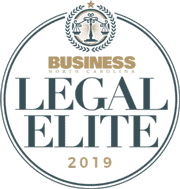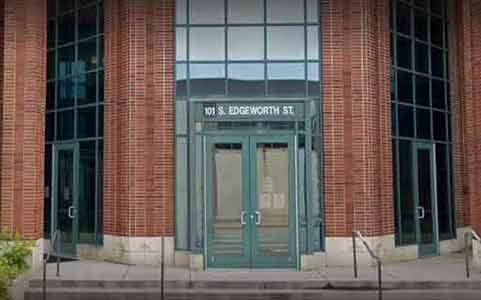Frequently Asked Bankruptcy Questions
Filing bankruptcy is a big decision, we are here to help you to decide if bankruptcy is the right choice for your situation. We understand that there are plenty of questions that you need to be answered. These FAQ’s will help you find answers to the most commonly asked questions.
The answers you find below are a good jumping-off point in gathering the information that you need to dispel some of the myths about bankruptcy, but nothing can take the place of getting first-hand information about your specific case from a trusted North Carolina bankruptcy attorney. If you are considering bankruptcy as a solution contact Ivey McClellan to get in-depth answers to all your questions as they apply to your situation.
Every case is different, and every case deserves the focused attention of a law firm that is committed to delivering personalized bankruptcy solutions. We are happy to answer your questions and help you to make an informed decision about the power of bankruptcy and how it can give you a fresh financial start. Contact us today for a consultation.
What is bankruptcy?
Bankruptcy is a legal process administered by the federal government. It provides debt relief to honest debtors in serious financial distress, usually resulting from a combination of factors such as divorce, health problems, unemployment or credit card debt.
Do I qualify for bankruptcy?
You must meet the income criteria (Means Test) to qualify for a Chapter 7 discharge. If you earn too much, have mortgage arrears, or need to protect non-exempt assets, you can file for Chapter 13 relief.
What is the difference between Chapters 7, 13 and 11?
In Chapter 7 bankruptcy, unsecured debts are discharged entirely, giving you a financial fresh start. In a Chapter 13 bankruptcy, you repay a portion of debts over three to five years. Chapter 11 bankruptcy provides creditor relief for businesses or individuals with very high incomes. Our team of bankruptcy experts can help you to decide which chapter is best for your situation.
Do I need a lawyer to file bankruptcy?
Technically, no, but bankruptcy law is very complex. A bankruptcy attorney can maximize your debt relief, maximize the assets you keep and anticipate any problems that would delay or derail your petition. Pro se petitioners (those that file on their own) often find themselves in over their heads and having their case dismissed.
Do I have to give up everything I own?
No! By utilizing property exemptions when filing bankruptcy, most of our clients do not lose any assets. In most cases, you can keep your car, your home, your retirement savings, personal property, and even some valuables. If you have assets that are not exempt, you may have to delay Chapter 7, file for Chapter 13 reorganization, explore alternatives, or forfeit those assets.
Can I save my house?
Yes! Filing for bankruptcy will stop foreclosure proceedings, at least temporarily. To discharge other debts through Chapter 7, you must be current on your mortgage. If you are behind on house payments, mortgage arrears can be rolled into a Chapter 13 repayment plan and repaid over time.
What debts are covered by bankruptcy?
Unsecured debts such as credit cards and medical bills can be discharged, as well as some judgments or back taxes. In general, you cannot discharge secured debt (loans secured by collateral), student loans, child support or alimony, recent taxes, criminal fines or personal injury judgments.
Can creditors still come after me?
On the day that your bankruptcy petition is filed with the U.S. Bankruptcy Court, all creditors are subject to an automatic stay. All legal actions and debt collection must be halted, including foreclosure, repossession, wage garnishment, and lawsuits. Creditors cannot continue to harass you or even contact you about your debts.
Can I pay off some debts and then discharge the rest?
No. You must declare all debts and you cannot repay family, friends or other favored creditors in the months before filing. The bankruptcy court will seek to recover any "preference payments.""
Do my spouse and I both have to file for bankruptcy?
If your debts are jointly held, you may have to file bankruptcy together. If most debts are in one spouse's name, that spouse can file for bankruptcy separately to protect the assets and credit of the other spouse. Our attorneys can help you and your spouse to decide what is best for your unique bankruptcy filing. Making these decisions are best made with reliable advice.
What if I previously filed bankruptcy?
You are not barred from filing bankruptcy more than once, but there is a waiting period. Whether you are eligible to file again depends on which chapter you previously filed and which chapter you are now seeking. Let us take a look at your case and help you decide the best route to take.
Will everyone know that I filed bankruptcy?
Bankruptcy is public record and there is no way to seal your bankruptcy filing. However, consumer bankruptcies are not published in the newspaper. Other than your creditors, it is unlikely anyone will know.
Will I ever get credit again after bankruptcy?
Bankruptcy is actually an opportunity to rebuild good credit if you live within your means and pay bills on time. Most people receive new credit card offers within a few months of filing bankruptcy, and you may qualify for car loans and even a mortgage within a year or two. Bankruptcy does stay on your record for seven or 10 years, but it has less and less impact as time goes by.
View our Bankruptcy Glossary for more information.
Office Locations
Greensboro
305 Blandwood Ave
Greensboro, NC 27401
Phone: (336) 274-4658
Fax: 336-274-4540
Eden
551 Monroe Street
Eden, NC 27288
Phone: (336) 623-4600









